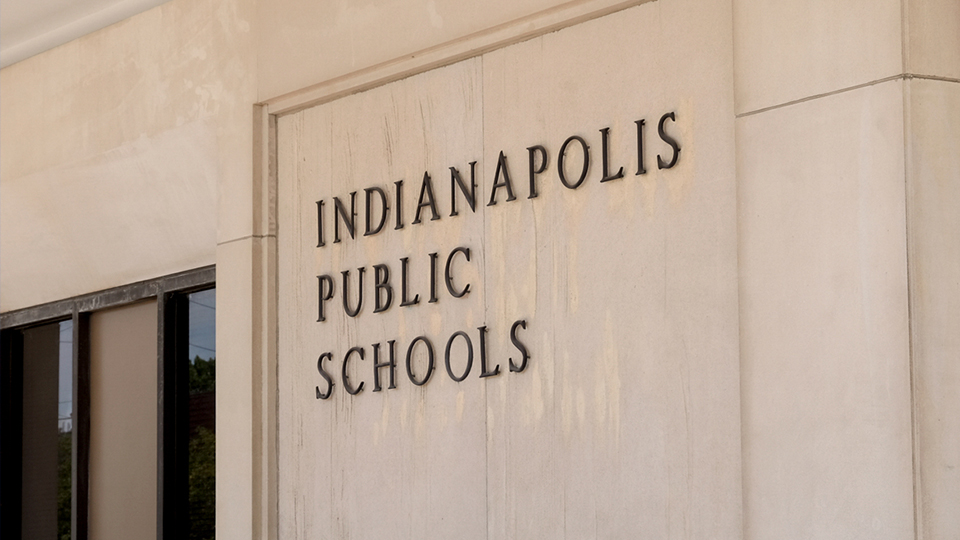IPS board delays operating referendum vote
Subscriber Benefit
As a subscriber you can listen to articles at work, in the car, or while you work out. Subscribe Now
The Indianapolis Public Schools Board of School Commissioners on Saturday agreed to delay a vote on a $400 million operating referendum to support the district’s Rebuilding Stronger plan.
The decision, made during the board’s Winter Board Retreat, comes amid criticism over the plan, including how much funding affiliated charter schools would receive if it was approved.
However, IPS said it will move forward with its $410 million capital referendum, which has already been approved for the May 2 ballot. The measure would support facility renovations throughout the district.
The proposed operating referendum would provide $50 million annually over an eight-year period to expand student programs and increase teacher pay through the program.
Earlier this month, the district said it would share $9.7 million in revenue from the referendum annually with 18 charter schools in its Innovation Network per year, up from $6.4 million in the district’s original proposal, Chalkbeat Indiana reported.
However, charter school advocates said the updated plan still fell short of providing equitable funding for schools.
On Friday, Indy Chamber said it would not support the referendum being placed on the May ballot.
“We believe that more time and engagement are required to allow the community to fully vet the current proposal, build support for a path forward, and work with state lawmakers to address inequities in the school funding formula that disadvantage IPS and many other schools across the state,” the chamber said in a written statement. “The Indy Chamber looks forward to assisting district leaders in this work and remains committed to the success of IPS and its students.”
In a lengthy statement posted to the IPS website on Saturday, Superintendent Aleesia Johnson criticized individuals and organizations in the community she said “are incentivized by cultivating dissension to position one group of people against another. Who are incentivized by schools failing kids—because it helps to prove their point—be it a charter school that closes in January or a district school that is restarted.”
She said now is the time to have hard conversations.
“If this referendum is to be delayed, then my hope is that there is an outcome that can come from it that will be even better for our students,” she wrote. “If we believe that all the children belong to all of us, then let’s talk about how all children win and be clear about who is responsible. And let’s talk about what everyone, public schools of all types, may need to sacrifice to accomplish that goal of our children winning so that taxpayers aren’t asked to bear the burden of supporting what is currently two different systems in our center city. “
Click here to read the full statement from Superintendent Johnson.
Brandon Brown, CEO of Indianapolis-based education not-for-profit The Mind Trust, issued a statement following the decision to delay the vote on the operating referendum. The Mind Trust is a local education reform group that has worked to launch charter schools and Innovation Schools, which are charters that are part of the IPS network.
“We applaud IPS Superintendent Dr. Aleesia Johnson, board President Venita Moore and the Board of School Commissioners for listening to families, educators and community members who have voiced concerns about the proposed operating referendum,” Brown said. “This pause will allow for additional time to build a coalition that supports fair funding for all public school students within IPS boundaries. The Mind Trust is proud to be a long-time partner with IPS, and we stand ready to support the district in developing a solution that can win broad community support.”
Justin Ohlemiller, executive director of Stand for Children, a branch of the national K-12 parent advocacy not-for-profit based in Oregon, issued a statement saying the “move today by IPS leaders will allow the tough but critical community conversations to happen to get this plan right.”
But Ohlemiller, whose group opposed the referendum as introduced, also said, “Dr. Johnson’s comments this morning were on point: We have a complex education system that doesn’t always prioritize the best interests of children, and we have to come together to address the myriad challenges.”
When the IPS board approved the Rebuilding Stronger plan in November, the district said the median homeowner in its boundaries would see an overall property tax increase of $6 per month if the referendums passed.
However, even if the operating referendum is ultimately approved for the May ballot, efforts at the Indiana Statehouse could delay both referendums even further.
IBJ’s Peter Blanchard reported last week House Republicans are considering legislation to push local referendums to the fall election amid uncertainty over property tax bill increases in the current economic environment.
“We’re exploring options to make sure people don’t move forward with spring referendums in a world where there’s this much uncertainty,” House Speaker Todd Huston, R-Fishers, said.
IPS has until Feb. 17 to certify the operating referendum to put it on the May ballot.
